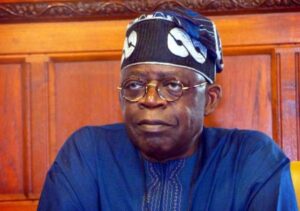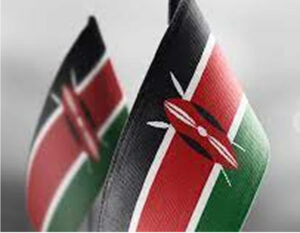The United Nations’ ability to carry out its mission has been severely constrained in recent years by its member states. And many of its agencies are now facing funding shortages that could severely curtail their work. In fact, multilateralism of all stripes is under strain, from the International Criminal Court to the World Trade Organization—to the World Health Organization. The United Nations is perhaps the most prominent manifestation of an international order built on balancing sovereign equality with great-power politics in a bid to maintain international peace. But its capacity to do that and to meet its other objectives, which include protecting human rights and delivering aid have been severely constrained in recent years by its member states.The real power in the U.N. lies with the five veto-wielding members of the Security Council the United States, Russia, China, Great Britain and France. And they have used their positions to limit the institution’s involvement in major recent conflicts, including civil wars in Syria and Yemen. Beyond the Security Council, the U.N. has sprouted additional specialized agencies to address specific issues health, women’s rights and refugees, among others that have met with varied degrees of success. In some instances, they have been able to galvanize global action around urgent goals, like UNAIDS’ work curbing the international AIDS crisis. But many of those agencies are now also facing funding shortages that could severely curtail their work, not least the World Health Organization, which is leading the global coronavirus response.In addition to the U.N. and its agencies, multilateralism of all stripes is under strain, in large part because of the Trump administration’s hostility during the past four years toward these organizations over the perceived constraints that multilateralism places on Washington’s freedom of action. The World Trade Organization was already struggling in its efforts to regulate international trade before Trump took office, but his protectionist-minded administration further hobbled the organization, particularly its ability to resolve trade disputes.United Nations General Assembly President Maria Fernanda Espinosa addresses the Nelson Mandela Peace Summit at U.N. headquarters in New York, Sept. 24, 2018 . President-elect Joe Biden promises to adopt a more conventional U.S. approach to multilateralism and America’s global role. But whether that will be enough to shore up the international order remains to be seen. It is unclear whether the WTO will be able to reassert itself as global trade revives after the COVID-19 pandemic, for instance. Meanwhile, the International Criminal Court is under pressure from all sides, with the Global South denouncing the Court’s lopsided focus on Africa every defendant so far has come from the continent while Washington has leveled sanctions against the ICC’s top prosecutor for investigating American war crimes in Afghanistan.Other multilateral bodies, including the G-20 and G-7, are finding themselves ill-equipped to exercise any influence, as global powers are increasingly interested in competition rather than cooperation. While Moscow, Beijing and, increasingly, Washington were already looking to shake up the status quo, the pandemic has encouraged other countries to try to take advantage of the situation for their own political, economic and strategic gain. Bodies like the G-20 and the G-7 were designed to leverage the economic power of rich countries around a unified response to international crises, but there is little unity to be found at the moment.WPR has covered the U.N. and multilateral institutions in detail and continues to examine key questions about their future. Will veto-wielding Security Council members continue to curtail U.N. involvement in key geopolitical hotspots, and what will that mean for the legitimacy of the institution? Will the U.N. and its specialized agencies be undone by threatened funding cuts? Will the world be able to formulate a multilateral approach to addressing the health crisis and economic fallout of the coronavirus pandemic?
People unfamiliar with the council’s inner workings might be surprised to learn how much of it is routine, as diplomats update mandates for ongoing peace operations and sanctions regimes on a pre-set schedule. But unforeseen crises always force their way onto the agenda.The Liberal International Order ,The creation of the U.N. heralded the rise of an international order based on collective security, liberalized trade and political self-determination. That is now beginning to recede as powerful states like China, Russia and, increasingly, the United States prefer to oversee spheres of influence and disregard the principles of sovereign independence and nonintervention.How multilateralism survived Trump relatively unscathed, Trump Failed to Kill Multilateralism, and Might’ve Even Made It Stronger. Why reports of the liberal world order’s demise have been greatly exaggerated, in Hold Those Obituaries for the Liberal World OrderWhat recent public opinion polls reveal about the continued appeal of multilateralism In Gauging Public Support for Multilateralism Around the World and in the U.S. we’ll miss the WTO when it’s gone, in Preparing for a World Without the World Trade Organization The U.S. Approach to Multilateralism U.S. President Donald Trump consistently criticized multilateral institutions since taking office, threatening to cut funding to the U.N. and waging a largely victorious campaign to sideline the International Criminal Court. Meanwhile, he withdrew the U.S. from the Paris climate change agreement and the multilateral deal limiting Iran’s nuclear program. His latest targets, the WTO and the WHO, are struggling to withstand his attacks. Biden is expected to reverse all these moves upon taking office Jan. 20, but he will have a harder time repairing the damage done to U.S. leadership by four years of Trump’s presidency.How Trump’s war on the WTO helped free China’s hand on economic coercion, in By Crippling the WTO, Trump Paved the Way for China’s Trade War on Australia What Biden can do to signal America’s return to the U.N., in How Biden Can Prove That ‘America Is Back’ at the United NationsWhy saving the WTO is far from a sure thing for Biden, in Can Biden Salvage the World Trade Organization?How the incoming Biden administration can breathe new life into multilateralism, in Four Ways Biden Can Reinvigorate the U.N.Crisis ManagementOne of the strengths of the U.N. and its specialized agencies is their ability to organize relief in the aftermath of a natural disaster or humanitarian crisis. The U.N. and its agencies led efforts to end the recent Ebola outbreak in the Democratic Republic of Congo and are helping to rebuild key infrastructure following the massive explosion in Beirut’s port, which killed 178 people. They are also scrambling to bring down rising global hunger levels, even as the pandemic threatens to create skyrocketing rates of malnutrition. That is one of the many roles the U.N. and other multilateral actors have to play in the response to the coronavirus pandemic—if the U.S. and China can agree to set aside their rivalry.How the coronavirus pandemic is putting the U.N.’s crisis-response system to the test, in COVID-19 Poses the Greatest Challenge Yet to the U.N. Humanitarian SystemWhy governments must do more to prepare for climate-related disasters, in The World Is Woefully Unprepared for Climate-Driven Natural DisastersWhat an effective multilateral approach to post-pandemic recovery would look like, in The Partnership for Recovery: A Roadmap for Building Back From COVID-19How the European refugee crisis affected international norms on asylum, in Has the World Learned the Lessons of the 2015 Refugee Crisis?U.N. Politics and Security Council DiplomacyThe Security Council’s activities have always been constrained by the five veto-wielding members, known as the permanent five, or P5. Syria is a prime example of this failure, as Russia has consistently blocked any measures that would work against the interests of the administration of President Bashar al-Assad, with which it is allied. There have been regular calls to rethink the composition of the permanent members to reflect contemporary geopolitics, but those efforts have made little progress. Meanwhile, as gridlock in the Security Council hampers many diplomatic efforts, the U.N. General Assembly has taken on added significance as a sounding board for multilateral initiatives that lack great-power sponsors.Why the U.N. won’t have time to celebrate its momentous anniversary this year, in 10 Hard Realities About the U.N. on Its Troubled 75th AnniversaryA look at the top items on the U.N.’s agenda at this year’s General Assembly, in Can a Virtual U.N. General Assembly Deliver on Real World Problems?Why the Security Council took so long to endorse a global cease-fire during the coronavirus pandemic, in Is All Hope Lost for a Global Cease-Fire Resolution at the U.N.?Why the Security Council cannot afford to remain silent in the face of the coronavirus pandemic, in As COVID-19 Runs Rampant.




